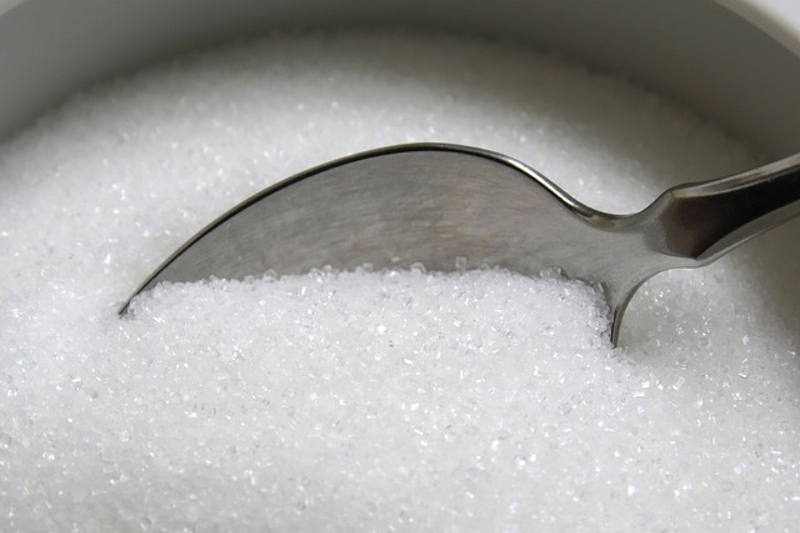With consumer awareness regarding the dangers of excess sugar consumption rising, many are turning to low or no-sugar alternatives to indulge in guilt-free snacking. There are several sweetening solutions available — both natural and synthetic — that can be incorporated into food and beverage products to enhance the flavour profile of healthier snacks and drinks. However, bringing natural sweetening solutions to market isn’t always a walk in the park; each one will come with formulation, manufacturing and regulatory hurdles to overcome … before even considering the commercialisation process.
Although the task may be challenging, a number of companies are overcoming the difficulties associated with introducing natural sweeteners and leading the way in terms of encouraging sugar reduction throughout the food and beverage industry. To find out more about how industry experts are doing this, NBR spoke to CarobWay’s CEO and cofounder, Udi Alroy, BGG World’s CEO, Jürgen Nelis, and NutraEx’s Lead Business Developer, Harvey Martens.
The desire for clean-label healthier alternatives has hit an all-time high
Sugar’s stronghold loosens
Sugar has been used for centuries to improve the flavour profile of food and drink products; but recent concerns surrounding its association with metabolic disorders such as diabetes and obesity has seen the public increasingly avoid the substance when possible. The desire for clean-label healthier alternatives has hit an all-time high, so businesses can arguably use this to their advantage by catering to this growing desire from both a consumer and manufacturer standpoint.
According to a consumer survey conducted by Kerry’s Health and Nutrition Institute, 79% of participants believe that reduced or no-sugar food and drinks were healthier than full sugar versions.1 With the tides turning on the public’s opinion on sugars, businesses will benefit more than ever from incorporating natural sugar replacements into their formulations.
The regulatory challenges
Regulations are a significant hurdle in the food product commercialisation process; so, to remain competitive, companies must find ways to ensure compliance while also getting the product to market quickly. Harvey notes that the variation between global regulations can prove difficult when trying to commercialise a natural sweetener: “All brands serving the worldwide market are faced with a number of differing regulations, depending on where you’re selling. Often, ingredients that work the best for their
intended purpose are only allowed in certain geographies.” 
“This can be overcome by offering sweeteners that are suitable for the regions with the most stringent regulatory laws, such as the UK and EU. This then means that you are likely to be compliant in any region and your sweetener will be widely available for commercialisation. NutraEx currently makes sweeteners for the North American, UK, EU and APAC markets.”
Jürgen has a similar line of thinking but believes that time to approval is the most troublesome issue: “It takes a lot of time and effort to get regulatory approval, as each country has its own rules that you must be compliant with. Companies must be proactive when determining what regulations are in place in the countries they want to sell in and how the product may need to be altered to adhere to them. It’s also advisable to work with GRAS-status ingredients such as stevia glycosides as this can speed up the
regulatory process significantly.”
CarobWay took a different stance. “Regulation is not a barrier for producers of carob sweeteners as the ingredient has been used in human nutrition for thousands of years globally … and at least 100 years in the western world. Carob is used in a variety of forms — from molasses to powder to chips,” noted Alroy.
Overcoming manufacturing hurdles
Commercial natural sweetener production can also cause difficulties for businesses owing to a range of factors such as quality control and contamination. Jürgen elaborates: “When you are working with plant-based high-intensity sweeteners, it’s very important to be able to manufacture your product so that the quality and composition between batches is consistent. Avoiding heavy metal contamination in botanical-based sweeteners is also essential.”
“To create a safe and effective sweetening solution, companies should employ a stringent quality and contaminant testing protocol, from batch-to-batch, which will reduce the likelihood of unwanted by-products ending up in your sweetener while also mitigating the negative impacts of batch inconsistency.”
Udi builds on Jürgen’s sentiment: “Carob is simple to use and formulate; plus, it’s relatively easy to utilise when replacing any type of sugar. The main challenge is to provide a consistent product in terms of flavour and sweetness. There are many carob varieties — each with different characteristics — so this can be challenging. To combat this, we created a processing solution to make each carob batch consistent.”
Harvey elaborates: “The bulk density and solubility of your natural sweetener can impact manufacturing in the context of formulating low- and sugar-free beverages. Our embedding process has removed this challenge by allowing food and beverage manufacturers to ‘plug and play,’ enabling sweeteners to entirely replace sugar in a product.”
Impersonating the sweet profile of natural sugars can be difficult
Replicating the sugary flavour
Although sugar replacement options can be incorporated into food and beverage products with relative ease, impersonating the sweet profile of natural sugars can be difficult, states Udi: “A big hurdle to overcome when formulating a sweetener is its flavour profile, as well as the optimal sweetening ratios when the solution is
included in a food or drink.”
“Carob sweeteners tend to enhance specific flavours such as vanilla, chocolate, fudge and coffee, and often have a similar ratio to standard sugars when added into products. Therefore, they can be easier to incorporate into formulations compared with other natural sweeteners,” he adds.
Jürgen echoes that flavour characteristics are a highly important consideration, but also brings up the issues that stevia can face regarding “upfront and/or lingering bitterness” as well as “off-tastes.” He believes that it’s essential to account for these factors in the formulation process, ensuring that the level of sweetness is as
close to sugar’s flavour and linger as long as possible. 
“Getting the taste properly balanced is a huge challenge because sweeteners have different characteristics compared with sugar. Stevia — especially the Reb-A sweetness peak that’s generally exploited for use in such products — is narrow compared with sucrose,” states Harvey. “Therefore, hitting this peak is essential when developing a stevia product for an optimal flavour profile.”
Successfully commercialising natural sweeteners
Once a company has jumped through the hoops associated with the development and production of a sweetener, they must overcome the final hurdle: commercialisation. Harvey believes that food manufacturers themselves present the toughest challenge to negotiate at this stage: “Cost is a significant problem that must be overcome when trying to commercialise a natural sweetener. Consumers are ready to pay a little extra for a better quality sweetener, but brands often resist this change. That’s why we’ve developed some natural sweetener products that cost less than sugar at scale.”
Jürgen adds: “Although stevia sweeteners are generally accepted by the public, a large proportion of users need further education regarding the benefits of natural sweetening solutions and how these products can help them to avoid artificial sweeteners, which have been linked to adverse side-effects.”
Udi agrees, commenting: “Global consumer awareness on the benefits of carobs does exist — although it’s not commonly talked about in the industry. Therefore, we believe that the main challenge is selling such a product at the B2B level. With the current market seeing a shift towards natural and more nutritious alternatives, we have intentionally positioned ourselves at this consumer and manufacturer intersection, which allows us to cater to both parties.”
Reference
1 https://khni.kerry.com/news/sugar-reduction-sweetness-role-in-health-the-environment-and taste/#:~:text=The%20need%20for%20sugar%20reduction%20is%20undeniable%20%E2%80%93%2079%
251%20of,healthier%20than%20full%20sugar%20versions.
